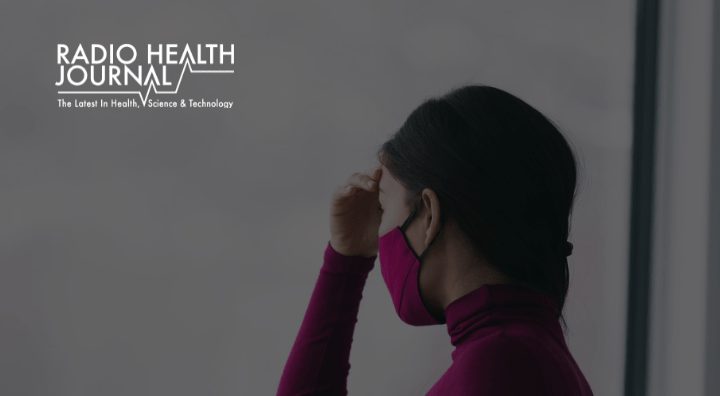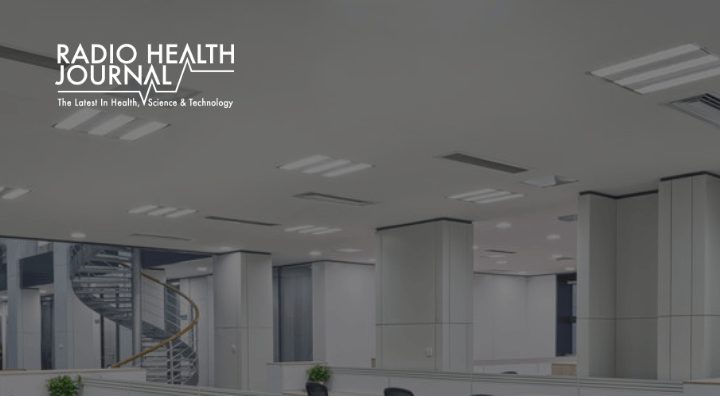Most employers believe the workplace is no place to nap, but research increasingly shows that a short nap in the middle of the day carries many benefits in increased productivity.
Guest Information:
- Dr. Michael Grandner, Director, Sleep and Health Research Program, University of Arizona
Links for more info:
17-05 Power Naps at Work
Nancy Benson: Just about everybody has a slump in the their workday; a little while after lunch you just find yourself getting sleepy. You might struggle getting anything done on the job for an hour or two but heaven forbid you put your head down and take a nap.
Dr. Michael Grandner: We tend to have this work ethic that sleep is unproductive time, so at night we tend to limit how much sleep we’re getting because we feel like if we get less sleep – it gives us more time to work and that’s especially so when talking about naps during the day. Naps are often seen as time spent not working when you should be working and when you’re seen napping, you’re seen as having less of a work ethic and especially employers don’t want to pay for time you’re not working.
Benson: But Dr. Michael Grandner, Director of the Sleep and Health Research Program at the University of Arizona says taking a nap at work may actually be the best thing you can do for your boss.
Grandner: When those people take naps, when they take short naps during the day, they tend to improve brain function – sometimes dramatically – you can improve ability to learn, ability to remember, it improves your reaction time, decreases fatigue, improves alertness, improves ability to focus, and it might even improve decision making & strategic thinking. And it could also potentially improve your ability to make healthy choices – for example, when you’re deciding what to eat for dinner, people who are more fatigued and more tired tend to chose more unhealthy foods than people who are rested. So a nap during the day can have, actually pretty profound benefits.
Benson: Some studies even show that a mid-afternoon nap can refresh people as well as 8 hours of sleep. However, convincing the boss that it’s in his interest to let you snooze may be an uphill battle – especially in some industries.
Grandner: Industries where safety isn’t as much as an issue – things like banking, finance and corporate culture – a lot of those sort of industries still cling to this old idea that sleep is wasted time; it’s not an investment. Whereas safety sensitive industries are much more aware that sleep is very much an investment in productivity and safety, relative to a cost of time – in a safety sensitive business this is a no brainer, you’re probably doing it already – if not, you really should. Because one mistake, one error, one accident – more than pays for the time that you’re putting into this.
Benson: Grandner says that transportation industry has been especially aggressive in trying to understand sleep schedules and napping.
Grandner: To them, falling asleep and lack of alertness can be – besides the human cost of car crashes and injuries – can be very expensive, so it’s very much in their interest to have their drivers, air traffic controllers and pilots, etc; be relatively well rested. So, the transportation industry has been a leader in the area of trying to understand how this works. The military also – they’ve been at the forefront of research and trying to understand, “how can we optimize physical and mental health and performance by leveraging something as simple as a nap in the middle of the day?”
Benson:High-tech industries are also more likely to provide nap rooms or pods so employees have a better chance to disengage from work. And professional sports teams are cutting through the cultural bias against napping.
Grandner: They care about winning and if you show them that, “I will help you win, if your people are better rested, making better choices on the field or on the court and they’re recovering better, they’re healing faster, they’re getting inured less. If I can show that sleeping better will help you win,” – you’ll do it and they’ve been doing it and this is why you hear about this in the news all over the place, about sleep being like the new big thing in athletics – because it works. Take that to a company and if a company doesn’t care so much about they’re own pre-conceived notions of what these are, but if they care about winning – if they care about bottom line, if they care about having employees be productive and effective – then they’re going to look at whatever strategies they can to make that happen and be a little more unbiased when they look at the data. And companies that are doing that and taking a look at the data, they’re seeing that allowing employees to nap actually helps them win.
Benson: And you don’t have to snooze for very long to reap those rewards.
Grandner: The amount of time you spend napping might not really matter, that when you look at studies comparing length of naps – whether it’s a 20 minute nap, 30 minute nap, 60 minute nap – it doesn’t seem to matter, which is where the idea of a short 15 – 20 minute nap comes from, where you don’t seem to get more bang for your buck when you nap more. If anything, you don’t want to nap too long cuz then you just wake up groggy.
Benson: How long is too long? Grandner says that depends on the time of day.
Grandner: You don’t want your body to think that you’re going into nighttime sleep cuz naptime sleep is much lighter. Not lighter as in not important, it’s just lighter in that it’s much easier to wake up from because your body is expecting to wake up soon. It knows it’s daytime, its not going into a full sleep cycle. At night, you can get into a full sleep cycle relatively quickly and efficiently, but during the day when you take a nap; it takes a while to get into more nighttime sleep. So, a good rule of thumb is, during the day you don’t want to nap for more than an hour – that’s usually a good rule of thumb. For some people it’s a little less, for some people it’s a little more. The closer you get to nighttime, the shorter that window is because the more likely your brain is to think that I actually is nighttime sleep. But if you’re taking a nap closer to the middle of the day, which is probably the best time to nap, you don’t want to nap for more than an hour.
Benson: Where you take that power nap is also important.
Grandner: Could you sleep at your desk? Yeah, you can sleep at your desk. But aside from the fact that your desk is probably very distracting and it’s also – you don’t want to condition yourself and you don’t want your desk to be the place that you sleep. Because what will happen is that you start trying to work and then you start getting tired because you’ve trained yourself that this is where the sleeping plays. If you want to maximize the benefit of a nap, you want that nap to be in a different place than where they’re working. Which is the same reason why, if you’re at home, and you’re in bed then you should be sleeping. Don’t do other stuff in bed that’s not sleep – you want the bed to be the place for sleep, just like you want your desk to be the place for work, don’t nap at your desk. Nap, if you’ve got a couch, if you’re one of the very few places that has a nap room use that, but – it’s a lot of offices that will have a break room or a couch or something.
Benson: Grandner says, sleep is one of the three pillars of health along with diet and exercise. Our knowledge about sleep has lagged behind the other two in part because it’s hard to measure.
Gardner: But the good news about sleep – it seems to be on par with about as important as these other factors like diet and exercise. But it’s easier to change and you get benefits faster and if you change your diet it may takes weeks before you really see much of a benefit in terms of your health much less months. With sleep, you can start seeing affects within a few days – if you’re not sleeping well and you can improve your sleep you can probably see benefits quickly. And even better, sleep is easier to change than diet and exercise.
Benson: Who knows, before too long an after noon siesta may be as accepted here in the United States as it is in some of the rest of the world. You can find out more about all our guests through links on our website, RadioHealthJournal.net. Our production director is Sean Waldron. I’m Nancy Benson.
Sign up to receive email updates
Enter your name and email address below and I’ll send you periodic updates about the podcast.











Leave a Reply